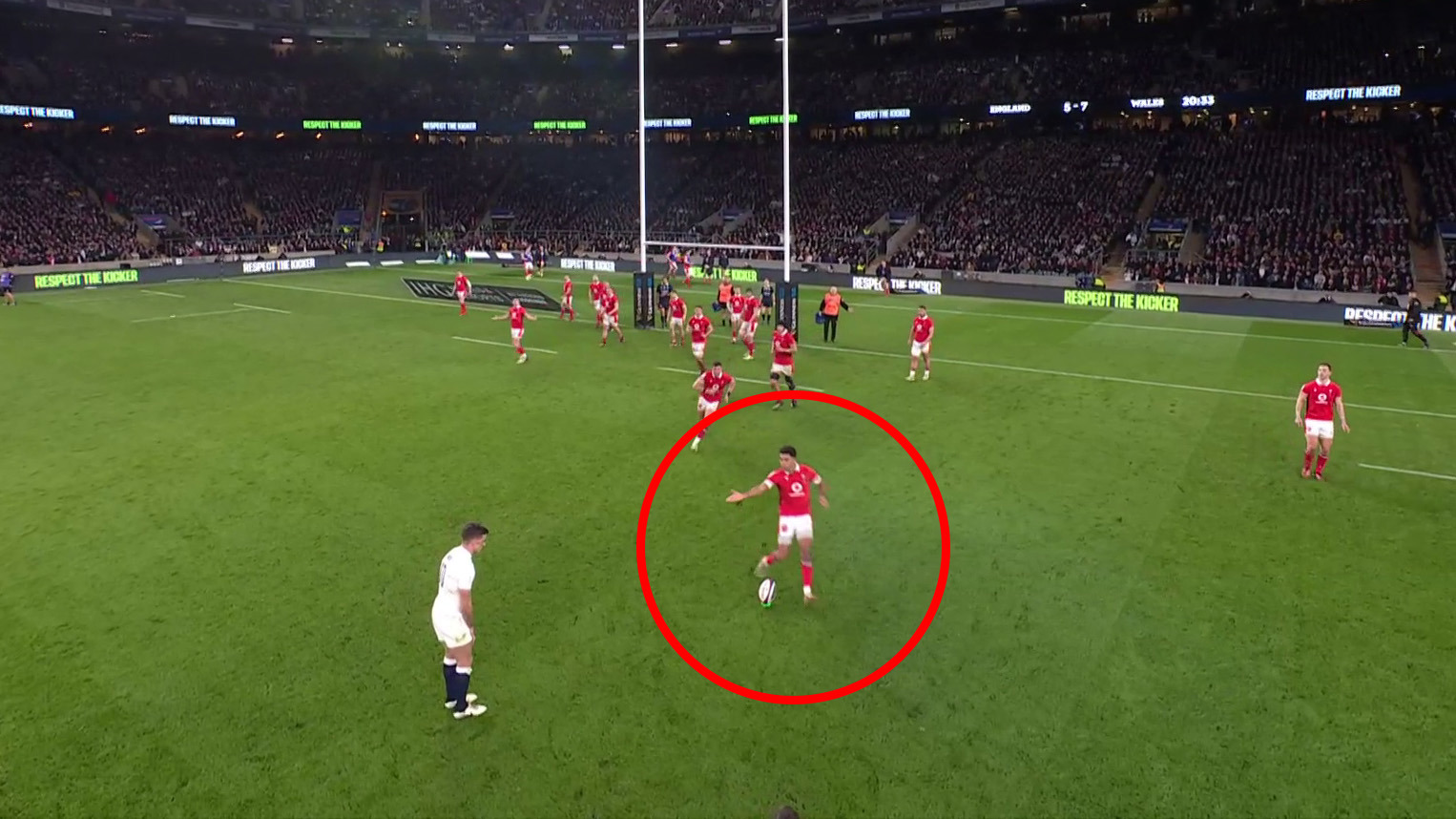Goal kickers will have to “stand like statues” after one small step cost George Ford a chance to kick a conversion in England‘s tight two-point win over Wales.
In the 20th minute of the second-round Six Nations match, Ford was lining up a kick at the goal when he stepped to the side.
Welsh players Rio Dyer and Elliot Dee rushed at Ford and then kicked the ball from the tee believing he had begun his kicking motion.
Watch the 2024 Six Nations tournament on the home of rugby, Stan Sport. Every round exclusive, ad free, live and on demand
New Zealand referee James Doleman ruled the kicking motion had begun and so it was play-on.
Under World Rugby’s rules, “All players retire to their goal line and do not overstep that line until the kicker moves in any direction to begin their approach to kick.
“When the kicker does this, they may charge or jump to prevent a goal but must not be physically supported by other players in these actions.”
Ben Earl’s try went unconverted and Twickenham erupted into boos as the bemused England players retreated to halfway.
Ford was none too happy with the call, speaking at length with Doleman over the decision.
Post-match, the fly-half said kickers would have to be much more vigilant about their set-up.
“Some of us kickers are going to have to stand like statues at the back of our run-up now,” he explained.
“A lot of things with kickers are, you want to get a feel, and sometimes you don’t quite feel right at the back of your run-up, so you adjust it a bit and think ‘right I’ve got it now’. You want your chest to be (pointed) at the ball and all them things.
“What it means for us kickers is that we’ve got to be ultra-diligent with our set-up and process, as if they’re going to go down that route and look for stuff like that, we can’t afford that.
“(The current law) doesn’t make sense to me, mate. I’m trying to use the full shot-clock time as we’ve got men in the bin, you’re at the back of your stance, have your routine, and if adjusting your feet like that is initiating your run-up then… I’m not too sure to be honest.”
Fortunately for England, the kick didn’t alter the game’s outcome as they triumphed 16-14 over Wales.

TMO turmoil raises eyebrows
England’s contest with Wales wasn’t the only match marred by controversy.
Scotland had seemingly done enough to defeat France at Murrayfield when the match’s decisive moment played out in slow motion.
A come-from-behind win looked to be on the cards when Scotland player Sam Skinner shoved his way over the try line.
Initially, Australian referee Scott Berry ruled it a no-try but upon TMO review there appeared to be enough evidence to overturn the decision.
After an agonising few minutes of deliberation, TMO official Brian MacNeice appeared to have made his mind up and saw it fit to award the try.
“There’s the ball on the ground,” he said.
Berry echoed the TMO, “So you’re saying the ball was initially on the foot and then it’s gone and grounded in-goal, so I need to change my onfield decision to a try.”
The TMO then said he needed “definitive evidence that the ball was on the ground” and seemingly wound back his earlier call.
He added, “I cannot say for certain, I don’t have clear enough ball on ground.”
At that point, Berry stayed with his on-field decision. With that, French players jumped for joy as 20-16 winners, leaving the Scottish to lick their wounds.
Like Twickenham, Murrayfield erupted as the home fans booed and jeered.
Ireland rout Italy
In the weekend’s third match, Ireland walked over Italy in a 36-0 drubbing.
In a dominant display, Jack Crowley, Jack Conan, James Lowe, and Calvin Nash each scored tries while Dan Sheehan crossed the try line twice.
Two bonus-point wins put them clear at the top of the Six Nations standings on 10 points.
England sit second on eight points ahead of Scotland on five and France on four. Wales and Italy sit second-to-last and last respectively on three and one.




